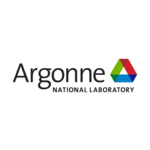
Public and Private Sector Leaders Align to Enhance Battery End-of-Life Opportunities
LEMONT, Ill.–(BUSINESS WIRE)–The United States has a generational opportunity to build next-generation lithium-based batteries to power electric vehicles and support the grid. However, the U.S. must address significant supply chain challenges to create a thriving domestic battery industry.
At a recent forum, more than 50 government and industry leaders brainstormed creative solutions to grow secure, sustainable battery supply chains and recycling infrastructure in the U.S. The event was organized by Li-Bridge, a public-private alliance committed to advancing domestic battery supply chains. The forum was managed by the U.S. Department of Energy’s (DOE) Argonne National Laboratory in coordination with three industry associations—NAATBatt International, New York Battery and Energy Storage Technology Consortium, and New Energy Nexus.
The group agreed on the most impactful policies and actions to ensure a reliable supply of battery materials for U.S. manufacturers. These recommendations are detailed in a recent Li-Bridge report.
“The minerals from lithium-ion batteries at end-of-life will be a key strategic resource in the future,” said Michael Berube, deputy assistant secretary for sustainable transportation and fuels at DOE. “By taking coordinated action now, we can ensure that the domestic battery recycling industry is well positioned to gather, transport, process, and recycle these batteries to meet our needs.”
A top challenge identified in the report: the economics of lithium battery recycling are poor because the collection, transportation, and processing costs to recycle materials are high relative to the materials’ intrinsic value. To improve the economics, one of the report’s recommendations is to boost R&D investment in low-cost ways to recapture low-value materials and components.
The report also delves into numerous ways to make battery collection, storage, transportation, and disassembly more effective and less costly. For instance, there is limited collection of spent batteries from cell phones, laptops, and other consumer electronics. The report recommends better economic incentives to encourage consumers to take their devices to collection facilities.
Many batteries and used electric vehicles are shipped to other countries. The report suggests the use of export controls as one possible tool to control this offshore “leakage.”
Building on the forum’s success, Li-Bridge plans to convene additional events. One possible topic is visibility and traceability of battery material flows through supply chains and at end-of-life.
Li-Bridge is funded by DOE’s Office of Energy Efficiency and Renewable Energy, Vehicle Technologies Office.
Full story here: https://www.anl.gov/article/public-and-private-sector-leaders-align-to-enhance-battery-endoflife-opportunities.
Contacts
Christopher J. Kramer
Head of Media Relations
Argonne National Laboratory
Office: 630.252.5580
Email: media@anl.gov


